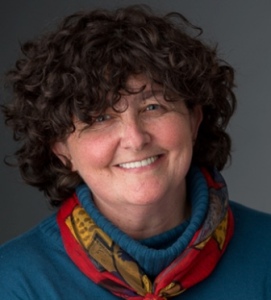Interview With Dr. France Weill CCC-SLP of Touro College

France Weill, PhD., CCC-SLP is an Associate Professor at the Graduate School of Speech Language Pathology at Touro College, NY. Her research interests include the role of memory and of interaction style in language development of toddlers, and the implementation of EMR in professional training programs. She is also running a private practice in Teaneck, NJ, serving as a consultant in various French-American schools and programs, and regularly offering professional workshops related to language, counseling, play and cognition.
Dr. Weill has extensive clinical and teaching experience in the areas of early language development, the role of cognition and metacognition in learning, play and language, Autism Spectrum Disorders, and distance learning. She is fluent in French, English and Hebrew.
Note: You should consult with your doctor or speech pathologist for recommendations on treatment. The views and opinions expressed in this article are those of Dr. Weill and do not necessarily reflect the official policy or position of SpeechPathologyMastersPrograms.com
How did you become interested in researching word learning in toddlers?
I have been working with toddlers since I graduated from Teachers’ College, Columbia University in 1992. At the time, I had toddlers of my own, and found it fascinating to observe the transformation that took place during their second year of life. I realized that all their first words were words that we had repeated multiple times, probably thousands of time, and that some “magic” operated later that year: almost from one day to the next, they seemed to learn new words at an exponential pace and without us teaching them those words! I was fortunate enough to work and brainstorm with Dr. Phillip Schneider; I realized that this “magic” of word learning had not operated for my young clients, and started to wonder what this “magic” was about. It appeared that some children learned best using repetitions, while others needed a nurturing play-based intervention to reach this transformational stage and blossom. I further explored this question in my research towards my PhD, culminating in fascinating work about working memory in toddlers for my dissertation. I eventually completed my PhD in 2011.
What are some of the most important things we have learned in this area in recent years?
When we speak, the acoustic signal fades quickly and is very variable, so children only have a very short time to process what they hear. They need to actively engage their attention and their working memory to hear, understand and remember what they heard. We know that children with developmental language disorders have more difficulty than typically developing children with controlled attention, working memory, flexible thinking and problem solving. So, very early on, they will have a harder time learning words. As the size of their lexicon itself leverages word learning, the more words children have, the better they will be at learning new words. By contrast, children who have a hard time learning new words will be at a continuous disadvantage and will therefore have poorer language knowledge than their peers. There are important clinical applications to that area of research: we need to develop instruments that will allow us to identify toddlers at risk for language impairment, using measures independent from IQ, cultural and gender influence. Actually, we know that working memory testing is a promising diagnostic tool in differentiating between children with and without language impairments for children 4 years and older. As working memory is a very good predictor of language development until age 4, tests of working memory have a potential for identifying toddlers at risk for language impairments.
What are some of the challenges to getting those with early language development issues the speech pathology care they need?
I think that the most persistent and vexing challenge is the poor early identification of children at risk for language disorders. The American Academy of Pediatrics recommends developmental screenings at 18 months and 24 months “well-baby visits“, but in my experience this is not the norm; the vast majority of the families in my private practice are self-referred or occasionally referred by the daycare provider. They typically have children between 18 and 36 months, and mostly with serious speech and language problems that could have been identified and addressed earlier.
Once we have identified children at risk, we need to recognize that many families that we see are very young families, and need additional forms of support to “make it work“. In many cases, families are facing financial issues, difficulties with practical organization, babysitting, scheduling, and work complications that require the involvement of extended family members. I believe speech pathologists should undergo basic training in counseling techniques such as Cognitive Behavioral Therapy (CBT) in order to recognize and appreciate the challenges families are facing, to help them address those challenges, and to refer the families to mental health professionals when needed.
The other challenges to getting speech pathology care to those with early language development issues are similar to those found in other areas of healthcare: access to providers, lack of multidisciplinary approach, cost, insurance coverage, or scheduling issues.
How can SLPs become better at keeping up to date on the evidence?
The two biggest challenges today are finding reliable evidence, and understanding how this research findings apply to the specific population we are treating.
Those of us who have access to rich online libraries can access excellent multi-search databases such as EBSCO, the Cochrane Database of Systematic Reviews (CDSR), that “attempts to identify, appraise and synthesize all the empirical evidence that meets pre-specified eligibility criteria to answer a specific research question“, and ComDisDome, “an indexing and abstracting tool covering the communications disorders literature, with a focus on speech-language pathology and audiology.“
Other reliable sources include foundations and nonprofit organizations dedicated to research, support and providing resources to people affected by a communication or developmental disorder.
How do you select new research topics?
Well, I am currently working on a few research projects. Some of them are connected to other aspects of my work as a faculty member, such as interprofessional education. After completing my PhD, I began devoting the bulk of my time to teaching and clinical practice. I have not deliberately selected the topics on which I am currently working; rather they have emerged from my work as a teacher and as a clinician. They have imposed themselves. I am currently working on the relationship between adult interaction style and toddlers’ language production during play. This idea stems directly from observations performed on play interactions between my students and toddlers for a school project.
You also have an interest in the use of counseling in clinical practice. How can this improve patient outcomes?
I see our role as communication specialists in a comprehensive way. The ability to communicate, understand, and function in school and in society are closely intertwined with social-emotional development. People living with a communication disorder often experience emotional reactions, thoughts and feelings that will affect their well-being, their perception of self and others, their role in the family and in society, and overall their decision making process. The use of counseling techniques in clinical practice allows us to address patients’ negative emotions and counterproductive coping strategies related to the communication problem. Counseling also helps us educate individuals and their families about communication strategies, empower them to make informed decisions, teach them self-advocacy skills, and when need be, refer them to relevant professionals. Today, ASHA considers the use of counseling techniques as an integral part of our scope of practice.
What aspect of your research are you most proud of?
I am first and foremost a clinician with a developmental mindset. In other words, I observe young children under my care, try to interpret their behaviors in light of current knowledge of child development, and intervene by creating an environment and using techniques that will foster change. In my current research, I am building on my experience as a clinician to explore linguistic environments and interaction styles that will foster this change in toddlers. I am delighted to be able to explore a domain that is so directly relevant to my clinical practice.
What advice do you have for those considering a career in speech pathology?
A career is much more than a job; it is a professional journey during which you will face ups and downs. Think: are you ready to embark on this journey? The rewards are immense. This is what your journey entails.
- Define your philosophy as a therapist; define your role in the therapeutic relationship
- Keep your eyes on your goals, consistent with the way you defined yourself
- See your therapy room as a safe space in which your patient will explore new communication styles and gain confidence
- Keep learning. Be curious. Be intrigued. Learn from what works; learn from what doesn’t work. Learn from children; learn from parents. Learn from yourself
- Be in touch with yourself; check in once in a while to make sure you are still on your journey. If you feel you are stranded, consider changes. Don’t abandon the ship.
Sponsored online speech pathology programs

Online MS: Pursue SLP Certification. Study FT/PT
Speech@Emerson enables you to earn an MS online and pursue SLP certification in as few as 20 mos. Learn the same curriculum as the on-campus program. Study FT or PT.
- Prepares you to pursue certification as an SLP generalist
- In-person clinical placements at faculty-approved partner sites
- As few as 20 months to complete
SPONSORED

Want to Become an SLP? Earn an MS Online at NYU
NYU Steinhardt’s online master of science program in Communicative Sciences and Disorders prepares aspiring speech-language pathologists with a comprehensive professional education.
- Prepares students to pursue SLP licensure
- Accredited by ASHA’s Council on Academic Accreditation
- As few as six terms to complete
- Full-time and part-time plans of study
SPONSORED

Online MS in Speech-Language Pathology from Pepperdine University
Pepperdine University’s online Master of Science in Speech-Language Pathology program combines a robust, innovative curriculum rooted in Christian values with a full-time or part-time option that features online learning, on-campus intensive experiences, and comprehensive clinical field practicums to prepare skilled, compassionate students for careers as speech-language pathologists.
- Full-time (five trimesters) or part-time (eight trimesters) options available.
- No GRE scores required.
- 400+ supervised, clinical learning hours are done at schools/clinics local to students
- Three onsite experiences build a sense of camaraderie and community throughout the program
SPONSORED

